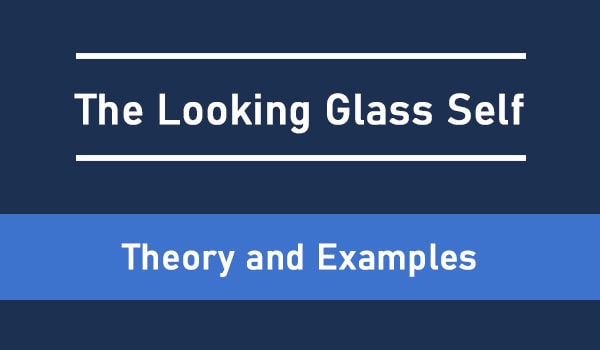American sociologist Charles Horton Cooley suggested the looking glass self for the very first time in 1902 into ‘Human Nature’ and ‘Social Order’. Cooley suggests that self-perceptions are centred on mirrored interpretations about how others perceive us that depend on how someone really interprets us.
As per Lisa McIntyre’s The Practical Skeptic: Main Concepts in Sociological Conceptions, the idea of a looking glass self represents one’s propensity to define oneself through the way others interpret them. The fundamental way in which you see and behave strongly relies on what others think about the individual. This method is ideally structured to create an identity significance. Identity is thus the product of seeking to see yourself in how others consider being.
The looking glass self is the mechanism through which people assess themselves according to how someone sees them. This concept shows that people first visualize how they look to others. Furthermore, they consider how someone else perceives them on the basis of appearance. Lastly, people get emotional responsiveness like confidence or humiliation, to this imagined decision. This self-assessment affects the self-esteem of the individual.

Three major components of the looking glass self are:
- We imagine how we would look to someone in a social environment.
- We visualize and respond to what we think of their evaluation to be.
- We build our self-awareness and react through this perception of others.
The theory of looking glass self is highly contentious for two factors. This opinion assumes that people know how people interpret them. Psychological studies indicate that people don’t have much confidence in interpreting how others see them. In reality, their perspective on how others observe us is somewhat more closely linked to our own views compared to what actually others see in us.
Some scholars have suggested that this research indicates that the idea of looking glass self is indeed repressive; they may just presume that others see it as they see it themselves. The theory is also contentious because other self-perception theories offer alternative reasons for how individuals shape their own views. For instance, the principle of self-perception argues that self-views are based not on the way we think people perceive us, but on personal observations of the behaviour.
Nonetheless, our thoughts are highly vital to us as to what people consider us. People spend a great deal of time getting input on how individuals perceive them, such as uploading their pictures on a website so that others can appreciate it.
The argument was made that the looking glass self of community is fundamentally insufficient since the different positions of classes in self-definition are ignored. This shows that, while people agree on the behaviour and attitudes of people of the group, they often differ from the behaviours and attitudes of other group individuals. This obvious implication derives from the study of the self-categorization theory of social influence.
Moreover, it is also argued that the concept of looking glass self does not highlight the fact that impact arises from the classification of others as an aspect of the self. In other meanings, individuals are therefore not moulded by the reflection of “other,” but are moulded by the establishment of a shared social identity that juxtaposes “us” with other people. The definition of self-identity can also be viewed as an illustration of a social system.
Few theorists have however stated that self-esteem has as its main function as an internal “sociometer” i.e. a measure of the current popularity or importance amongst our associates.
In conclusion, the principle of looking glass self examines us by focusing on how someone perceives us.







Leave a Reply